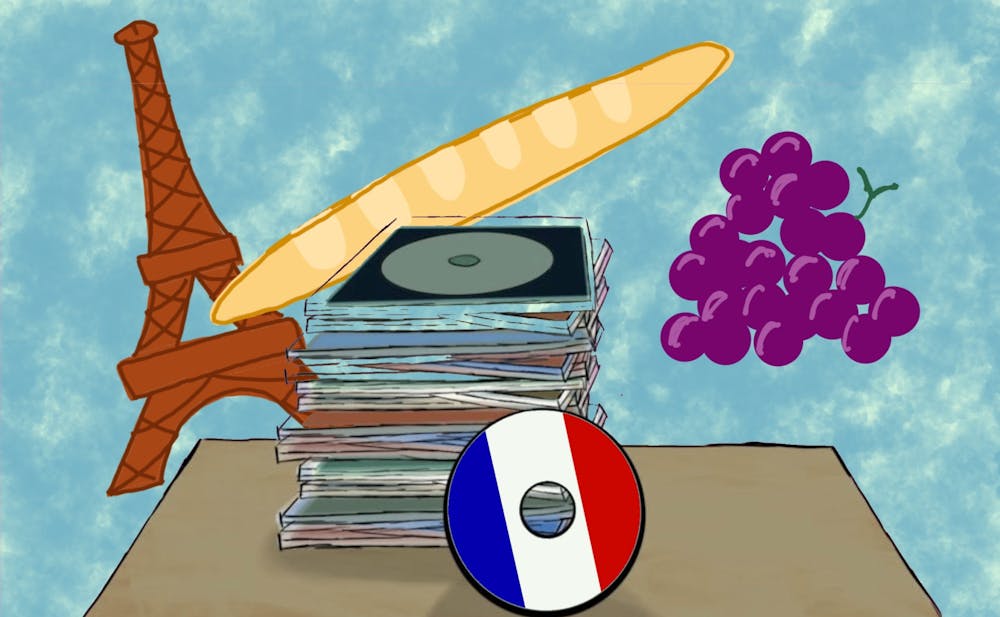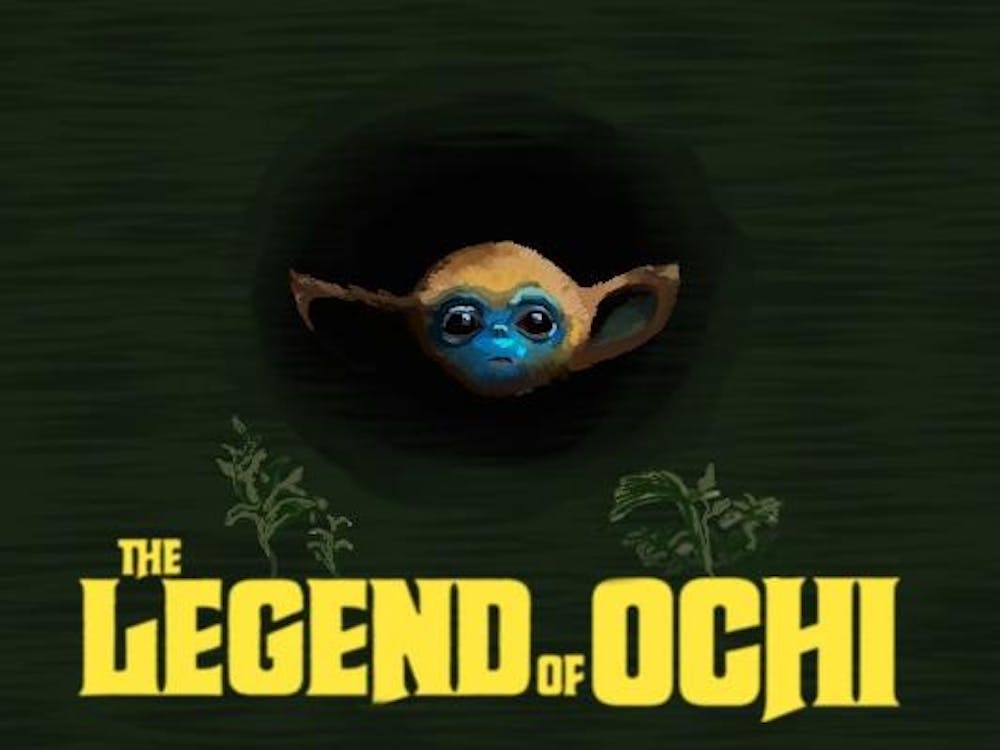With students settled back on Grounds and classes in full swing, summer has officially come to an end. This summer was a particularly exciting one, with the 2024 Paris Olympic games giving University students the chance to cheer on their fellow Cavaliers as they earned spots on the podium. While the Olympic flame has gone out, that does not mean that the inspiration instilled in students by the Cavalier medalists should go out with it. These four tracks from French artists — all of which were performed at the Olympic games — are the perfect way to reinvigorate that optimistic Olympic spirit and get in the mindset to go for gold this semester.
“Djadja” by Aya Nakamura
A shimmering spectacle in gold at the Paris Opening Ceremony, Aya Nakamura — the most streamed French-speaking female artist in the world — performed her hit song “Djadja” in a memorable performance on the Ponts de Arts footbridge along the Seine. Born in the former French colony of Mali and raised outside Paris, the pop star's music is an eclectic blend of R&B, hip-hop and Afrobeats with lyrics that daringly play with slang from all French dialects, including Parisien verlan and West-African Bambara.
Released in 2018 as part of the singer’s self-titled sophomore album, “Djadja” is her most well-known song. A razor sharp attack disguised behind smooth melody and an irresistible beat, Nakamura takes “Djadja” — a name she coined herself to refer to lying men — to call out those who have spread false rumors about her so-called sexual promiscuity.
Nakamura’s voice is reprimanding yet aloof as she sings, “There’s no way Djadja / I am not your ‘catin’ Djadja.” The choice of “catin” — an antiquated French word for prostitute — is a sly play on language that underscores both the artist’s hard-found belonging as a naturalized French citizen and her status as an outsider.
This commanding ballad speaks to all those searching to forge a space for themselves and their unique identities, providing the perfect boost of confidence for students at the start of a new semester.
“1901” by Phoenix
Just as Aya Nakamura opened the Olympics, French indie pop band Phoenix helped bring them to a close. The band emerged from Versailles in 1995, but did not reach mainstream success until their 2009 album “Wolfgang Amadeus Phoenix,” which earned them a Grammy for Best Alternative Music Album. At the Closing Ceremony, the band collaborated with French DJ Kavinsky to perform a medley of their respective hits, “Lisztomania” and “Nightcall.”
However, Phoenix’s most popular song is “1901,” released in 2009 as a single off their Grammy award-winning album. Characterized by driving, distortion-heavy guitars and its bright, cheerful melody, “1901” is a love letter to the Paris of old. Vocalist Thomas Mars sings “Past and present, 1855-1901 / Watch them build up a material tower,” playfully harkening back to the moment the Eiffel Tower — France’s most beloved landmark — was first built.
This optimistic yet nostalgic track is perfect for those who, in the midst of busy schedules and classwork, need a brief moment of happy escapism.
“Balance ton quoi” by Angèle
Sharing the stage with Phoenix and Kavinsky was Belgian singer-songwriter Angèle. The pop star is known for using her platform to speak out for women’s rights, and her message and her music have both reached international audiences. Her most notable hit is “Fever,” a 2020 collaboration with chart-topping pop sensation Dua Lipa.
“Balance ton quoi” — released in 2018 as part of her debut studio album “Brol” — is Angèle’s contribution to the #MeToo feminist movement, which brought awareness to the issue of sexual violence. The title is a play on the French equivalent of the #MeToo slogan, #BalanceTonPorc, or “denounce your pig.”
Atop eerie keyboards and a driving beat that appears happy almost in spite of itself, Angèle laments the magnitude of casual sexism and misogyny in the world. She sings, “Denounce your what / Even if you talk sh--t about girls / I know that deep down, you understood.”
However, even in the midst of struggle Angèle offers a glimpse of hope, dreaming that “One day maybe it will change.” The song is an affirmation of strength, providing both recognition of personal struggle and an atmosphere of hope to students facing the changes a new school year brings.
“Hymne à l’amour” by Édith Piaf
Perhaps the most memorable moment of the Olympics Opening Ceremony occurred when Celine Dion made a much-anticipated comeback performance. The singer stunned audiences across the world with her phenomenal rendition of French singer Édith Piaf’s “Hymne à l’amour,” a moving tribute to the lasting power of love originally sung by the woman considered to be the voice of France.
Originally released by Piaf in 1950, the track consists of a simple piano arrangement with accompanying orchestra that allows Piaf’s distinctive warbly vibrato to cut through the mix. Singing “I couldn’t care less about the whole world / As long as love will flood my mornings,” Piaf brings to life the beautiful imagery of the lyrics with the full force of her incredible, booming voice. The anthem of Paris, the City of Love, this classic continues to resonate with listeners across the world.
A bit of a throwback compared to the other tracks on this list, “Hymne à l’amour” is not only the perfect song to destress to in quiet moments of downtime but also will invite students to discover the genre of the French “chanson moderne,” a genre pioneered by artists such as Piaf.
From Édith Piaf to Aya Nakamura, the diverse artists on this list spanning years and genres will provide students with that “je ne sais quoi” — that certain something — needed to start the semester off strong. Whether that takes the form of encouragement, recognition or even mere escapism, these songs are the perfect soundtrack to new beginnings.







